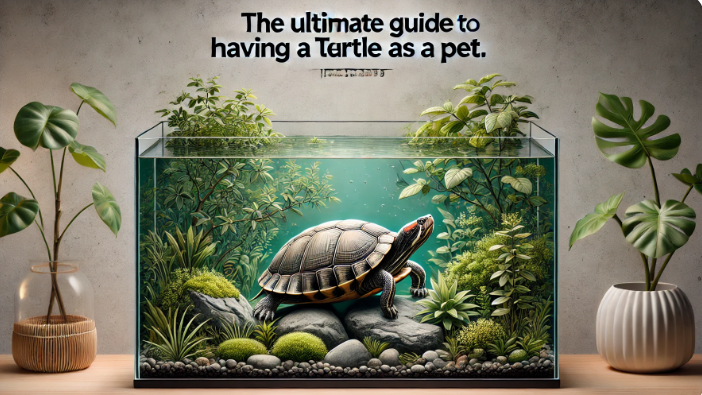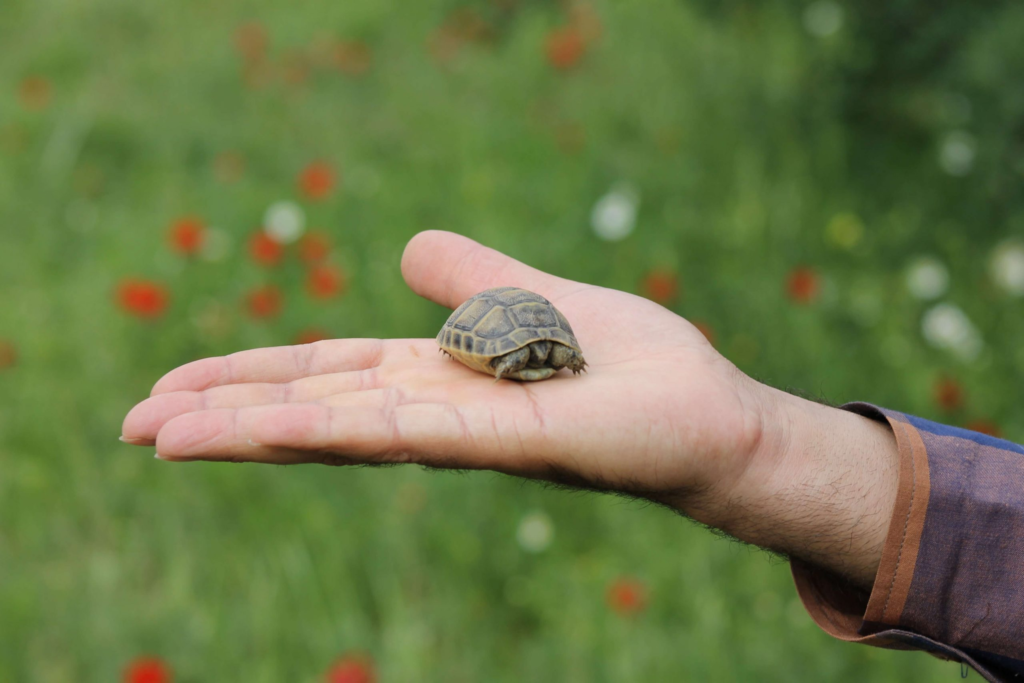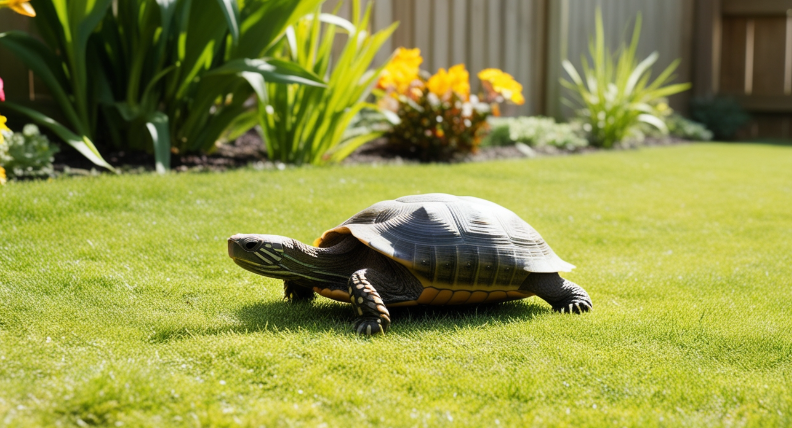Having a turtle as a pet may sound exciting until you get to know their own set of needs and quirks just like all exotic animals.
Their diet is peculiar: you won’t find turtle kibble at your local grocery store! They need much more than just an aquarium; precise temperature control is paramount for these cold-blooded reptiles, and so on.
Stick around as we weigh up the pros and cons of having a turtle under your roof – because sometimes slow and steady wins the race in choosing the right pet!
Low Maintenance and Lifespan of Turtle
Having a turtle as a pet has its own unique set of pros and cons. Having a turtle as pet may be one of the coolest things to own as they are generally low maintenance. They do not require constant attention, making them suitable for busy indivduals and households.
Also, turtles have relatively longer lifespans compared to traditional pets, living from 20 to 100years, which means if taken good care of they can last for a lifetime.
The Nutrition and Feeding Needs of Turtles

When it comes to feeding your pet turtle, it’s important to understand their dietary needs. Turtles are omnivorous animals, meaning they eat both plants and insects. As part of their diet, you should provide them with fresh vegetables such as leafy greens, carrots, and squash.
Additionally, giving them live food like worms or crickets can help fulfill their protein requirements.
Habitat Needs for Pet Turtles

Creating an appropriate habitat for your pet turtle is crucial for its well-being. Different types of turtles have varying habitat requirements based on whether they are aquatic or terrestrial species.
Aquatic turtles need large tanks with clean water that has proper filtration systems in place. On the other hand, terrestrial turtles will require spacious enclosures with areas to bask under heat lamps.
Potential Health Issues in Turtles
Like any living creature, pet turtles may experience health issues from time to time. Hence, having a turtle as a pet may require some attention to the common ailments likely to affect them.
Some common ailments include respiratory infections due to inadequate temperature regulation or poor water quality in aquatic setups.
Shell rot can also occur if cleanliness levels aren’t maintained properly in either type of habitat setup.
Turtle Species Suitability as Pets
Certain turtle species are more suitable as pets than others. While all turtles require specific care, some are easier to handle and have better temperaments for interaction with humans.
Species such as the red-eared slider and Russian tortoise are commonly kept as pets due to their adaptability and relatively calm demeanor.
Impacts on Family Lifestyle with a Pet Turtle

Bringing a pet turtle into your family can significantly impact your lifestyle. Unlike dogs or cats, turtles do not require constant attention or interactive playtime.
This might be an advantage for busy families who cannot commit to regular walks or extensive grooming routines.
Legal Implications and Regulations in Having a Turtle as Pet
Before getting a pet turtle, it’s important to understand the legal implications and regulations associated with owning one.
Also, if turtle was found at your backyard and you decided to keep it as pet, ensure to research for existing legal implications in your country or region.
In some areas, certain turtle species may be restricted due to concerns about invasive species or transmission of diseases like salmonella.
Emotional Engagement and Enrichment From Having a Turtle
While turtles may not offer the same level of emotional engagement as traditional pets like dogs or cats, they can still provide companionship on their own terms.
Observing their unique behaviors such as swimming or basking in the sun can bring joy and fascination.
Environmental Impact of Owning a Turtle

It’s essential to consider the environmental impact of having a turtle as pet before making this commitment. Turtles require specific environmental conditions that may involve energy-intensive equipment like heaters, UVB lights, or water filters.
Additionally, proper disposal methods for waste materials should be followed to minimize negative ecological effects and enhance hygienic conditions for your pet.
Caring Challenges Specific to Aquatic versus Terrestrial Turtles
Aquatic turtles have different care requirements compared to terrestrial ones. Aquatic setups demand consistent monitoring of water quality parameters such as temperature, pH levels, ammonia levels, filtration efficiency, etc., which could present a challenge for some pet owners.
Terrestrial turtles, on the other hand, require a suitable habitat with proper temperature and humidity levels to thrive.
Cost Analysis for Caring for a Pet Turtle
The cost of owning a pet turtle goes beyond the initial purchase price.
Factors such as buying or building appropriate habitats, providing specialized lighting and heating equipment, purchasing food supplies, and regular veterinary check-ups contribute to the overall expenses of caring for a turtle throughout its life.
Social Interaction Limitations With Pet Turtles
Unlike dogs or cats that actively seek human interaction and companionship, turtles tend to be more solitary creatures.
While they may tolerate gentle handling during occasional interactions with their owners, they do not typically engage in social activities or playtime like traditional pets.
Proper Handling Techniques For Safe Interaction With Your Turtle
When interacting with your pet turtle, it’s essential to follow proper handling techniques to ensure both your safety and the well-being of the turtle itself.
For instance, you should avoid gripping their shells tightly or restraining them forcefully. Instead, use gentle touches and support their weight evenly while ensuring your hands are clean to prevent any contamination.
Conclusion
Owning a pet turtle has its own unique pros and cons that vary depending on factors such as species type and personal preferences.
While they may not provide the same level of interactive companionship as traditional pets like dogs or cats do, turtles offer beauty in observing their natural behaviors within their carefully tailored habitats.
It is crucial to consider all aspects discussed – from meeting their specific care needs to understanding legal regulations – before deciding if having a fabulous aquatic or terrestrial friend is right for you!
If you found this article interesting you might want to read this too Having a turtle or tortoise as pet: pros and cons

